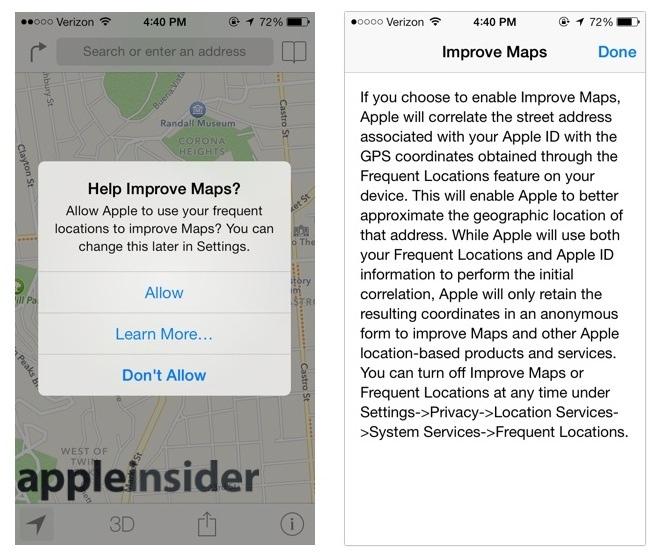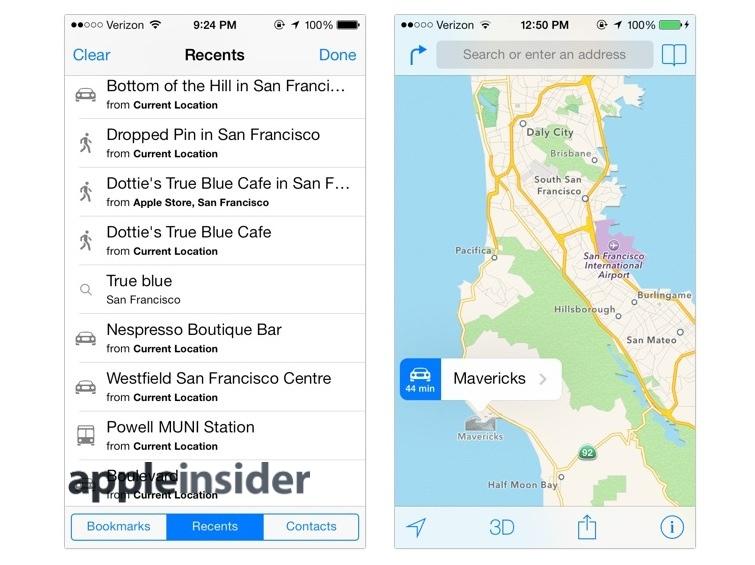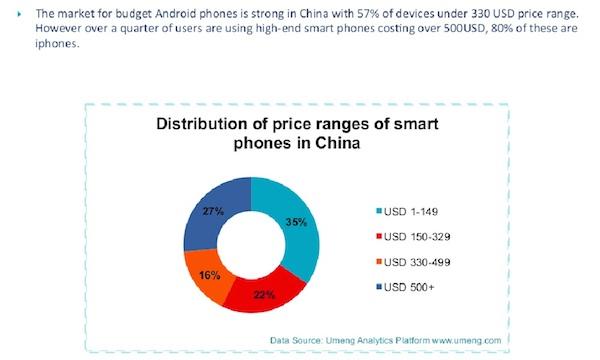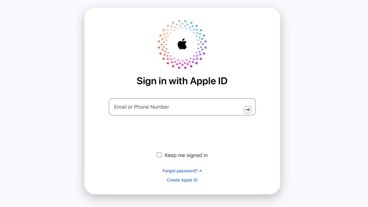Apple shoots down Chinese state media accusations targeting iOS privacy, location tracking
Apple's website in China has published a detailed response to accusations by the country's state owned media, refuting claims that iOS tracks users' locations in a firm but politely worded statement.
A posting titled "Your Location Privacy," presented in both Chinese and English on Apple's Chinese website, states "Apple is deeply committed to protecting the privacy of all our customers. Privacy is built into our products and services from the earliest stages of design. We work tirelessly to deliver the most secure hardware and software in the world."
Alluding the advertising-supported nature of Google's Android, Apple's statement continued, "unlike many companies, our business does not depend on collecting large amounts of personal data about our customers."
Instead, Apple wrote, "we are strongly committed to giving our customers clear and transparent notice, choice and control over their information, and we believe our products do this in a simple and elegant way."
Chinese propaganda targeted Apple over location tracking "concerns"
On Friday, China's state run China Central Television network published a report referring to iOS' Frequent Location feature as being a national security concern that might reveal sensitive information, "even state secrets," according to coverage of the issue by the Wall Street Journal.
The same CCTV network directed a similar populist attack on Apple last year regarding the company's warranty policies, alleging that it was "biased against Chinese consumers in its warranty and consumer service policies."
Apple's chief executive responded with a public statement noting that a lack of public communication could lead to "misunderstandings," for which he offered Apple's "sincere apologies."
The statement clarified Apple's policies, noting that "nearly 90% of customers expressed satisfaction with our repair services, and consumer satisfaction is the most important criterion for Apple to measure its own success."
Apple details its privacy policies
Regarding the new allegations targeting privacy and the Frequent Locations feature in particular (depicted below), the company stated, "we appreciate CCTV's effort to help educate customers on a topic we think is very important. We want to make sure all of our customers in China are clear about what we do and we don't do when it comes to privacy and your personal data.""Apple does not track users' locations - Apple has never done so and has no plans to ever do so." - Apple
It continued, "our customers want and expect their mobile devices to be able to quickly and reliably determine their current locations for specific activities such as shopping, travel, finding the nearest restaurant or calculating the amount of time it takes them to get to work. We do this at the device level. Apple does not track users' locations - Apple has never done so and has no plans to ever do so.
"Calculating a phone's location using just GPS satellite data can take several minutes. iPhone can reduce this time to just a few seconds by using pre-stored WLAN hotspot and cell tower location data in combination with information about which hotspots and cell towers are currently being received by the iPhone. In order to accomplish this goal, Apple maintains a secure crowd-sourced database containing known locations of cell towers and WLAN hotspots that Apple collects from millions of Apple devices. It's important to point out that during this collection process, an Apple device does not transmit any data that is uniquely associated with the device or the customer.
"Apple gives customers control over collection and use of location data on all our devices. Customers have to make the choice to enable Location Services, it is not a default setting. Apple does not allow any app to receive device location information without first receiving the user's explicit consent through a simple pop-up alert."Frequent Locations are only stored on a customer's iOS device, they are not backed up on iTunes or iCloud, and are encrypted"
This alert is mandatory and cannot be overridden. Customers may change their mind and opt-out of Location Services for individual apps or services at any time by using simple 'On/Off' switches. When a user turns 'Off' location data for an app or service, it stops collecting the data. Parents can also use Restrictions to prevent access by their children to Location Services.
"When it comes to using iPhone for traffic conditions, iOS can capture Frequent Locations to provide commute information in the Today view of Notification Center and to show you automatic routing for iOS in CarPlay.
Frequent Locations are only stored on a customer's iOS device, they are not backed up on iTunes or iCloud, and are encrypted. Apple does not obtain or know a user's Frequent Locations and this feature can always be turned 'Off' via our privacy settings."Apple has never worked with any government agency from any country to create a backdoor in any of our products or services"
"Apple does not have access to Frequent Locations or the location cache on any user's iPhone at any time. We encrypt the cache by the user's passcode and it is protected from access by any app. In the interest of even greater transparency for our customers, if a user enters their passcode successfully, they are able to see the data collected on their device. Once the device is locked no one is able to view that information without entering the passcode.
"As we have stated before, Apple has never worked with any government agency from any country to create a backdoor in any of our products or services. We have also never allowed access to our servers. And we never will. It's something we feel very strongly about."
Apple "caught in the crossfire" in American / Chinese privacy squabble
Reporting on the subject, CNET wrote, "It's possible, though not confirmed, that this CCTV report was retaliation for American officials on Thursday saying Chinese hackers broke into US computer networks that house the personal information of federal employees. China often responds to US accusations of cyberspying by taking aim at American tech companies. Apple, Cisco, Google, IBM, and Microsoft are just a few of the tech companies to get caught in the crossfire."
Apple has been extremely cautious in handling the Chinese market, which is already as important of a market for the company's products as the United States. Unlike the U.S. however, China continues to report tremendous new growth in device sales.
Data from Umeng, China's largest analysts firm, indicated that the vast majority of premium smartphones in China are iPhones. "The market for budget Android phones is strong in China with 57 percent of devices under the $330 price range," the firm reported in March. "However, over a quarter are using high end smartphones costing over $500; 80 percent of these are iPhones."
 Daniel Eran Dilger
Daniel Eran Dilger













 Mike Wuerthele
Mike Wuerthele

 Malcolm Owen
Malcolm Owen
 Chip Loder
Chip Loder

 William Gallagher
William Gallagher
 Christine McKee
Christine McKee
 Michael Stroup
Michael Stroup







46 Comments
I think this is more about China setting the stage for favoring its domestic companies like Xiaomi. Also worried for Apple that Chinese law won’t favor Apple in trade and intellectual property disputes either. China, like some other Asian countries thrives on IP theft and dissuading citizens from buying American products with scare tactics.
It's obviously not realistic or possible to fully accomplish just yet, but hopefully Apple has a longterm plan and a vision for eventually shifting production away from China. Bring on the robots! Millions of them! Forget about the Chinese clowns in that laughable government and their shitty state controlled propaganda tv. What a joke.
[quote name="dbolander" url="/t/181344/apple-shoots-down-chinese-state-media-accusations-targeting-ios-privacy-location-tracking#post_2563354"]I think this is more about China setting the stage for favoring its domestic companies like Xiaomi. Also worried for Apple that Chinese law won’t favor Apple in trade and intellectual property disputes either. China, like some other Asian countries thrives on IP theft and dissuading citizens from buying American products with scare tactics.[/quote] I totally wouldn't doubt a word you said. I would add as conjecture that I see this also as a way for China government to hide behind that perhaps they want to limit the amount of iPhones due to their stellar privacy and not because of it's modest opt-in/out nature. Perhaps they've tried to hack I phones for "privacy issues" and haven't been successful either. I have no doubt if iOS was as vulnerable to hacking as Android and Windows mobile, they would have said nothing. But this is all speculation on my part. They track data way more than even the NSA does in the US.
[quote name="Apple ][" url="/t/181344/apple-shoots-down-chinese-state-media-accusations-targeting-ios-privacy-location-tracking#post_2563358"]It's obviously not realistic or possible to fully accomplish just yet, but hopefully Apple has a longterm plan and a vision for eventually shifting production away from China. Bring on the robots! Millions of them! Forget about the Chinese clowns in that laughable government and their shitty state controlled propaganda tv. What a joke. [/quote] Yes robots would help keep production costs down if Apple were to bring full production back to the USA. That would be nice to see, but you're also going to get push-back from Apple haters and politicians saying robots take away good paying jobs from skilled laborers ready and willing to do that work. But I would love to see more production in the US. However, that would be kind of a slap in the face to china. A country that Apple needs to keep happy since that population is of great desire for the further growth of the platform. And don't forget China owns a majority of the US debt. So it's a very delicate political and economic ground.
It's obviously not realistic or possible to fully accomplish just yet, but hopefully Apple has a longterm plan and a vision for eventually shifting production away from China. Bring on the robots! Millions of them! Forget about the Chinese clowns in that laughable government and their shitty state controlled propaganda tv. What a joke.
Yeah, that's all fine and good, but this isn't about manufacturing, this is about iOS usage.
China isn't just a product supplier, it's also the world's largest market by population. No global consumer electronics company can ignore it's nearly 1.4 billion people. Basically, about one in every five people on this planet is Chinese.